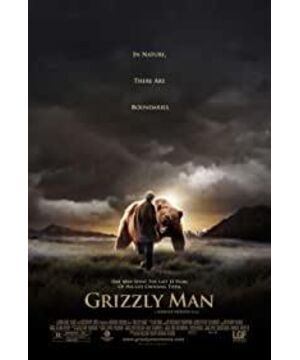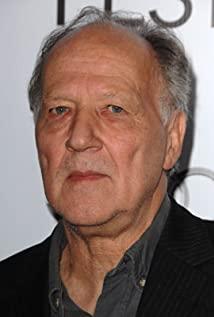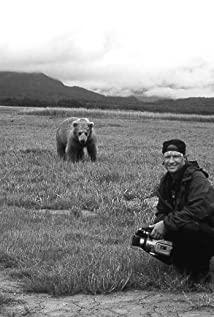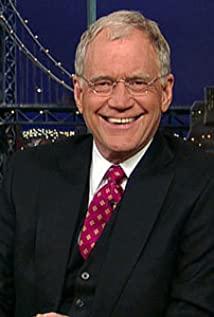He spent a total of thirteen summers on Bearman Island, and for the last five years before being attacked to death by Bearman, he began to record his life on the island with Bearman and many personal thoughts in digital video.
Director He Suo was deeply touched by this bear maniac's unrepentant obsession, and longed to use his life and death to bring the world a meaning to rethink life, so he combined the precious clips recorded by Che Weil on Bear Man Island and A large number of rich interviews have resulted in a unique documentary that goes deep into nature and deep into the heart.
When it comes to Hersuo, I have to mention one of his famous words: "I am my movie."
There are many people who say this, but if they can really achieve the unity of words and deeds, I believe that no one can match them. Especially the hysterical persistence, the will to fight against all odds, and the passion for life, which are not only reflected in the characters (plot and documentary) in his films, but also in his own legends during the filming process. Deeds (such as confrontation with his own actors at guns due to quarrel / filming in a Cameroon coup and being detained by the military government / hypnotizing actors to perform unconsciousness, etc.).
The reason why Herzog is surrounded by legends and anecdotes is largely due to his radical ideas about life. He believes that modern civilization makes people weak, and the human mind gradually degenerates in comfort and pleasure, and only suffering can clean it up.
However, it is ancient to apply this idea to the dramatic medium (such as the tragic hero in Greek mythology), and Aristotle already mentioned the "purifying" effect of tragedy in Poetics. And Ryuji Chai's footnote to the "tragedy purification theory" in his collection of aphorisms "Dwarf Words" is even clearer, he said "tragedy is to be daring to one's own shameful behavior. Therefore, to millions of people's Tragedy plays the role of excretion." After excretion comes purification, which is the highest goal of tragedy.
So there are tragic heroes in Herzo's films, such as Fitzcarrador and Cheville. It is through their indomitable paranoia about their dreams that they finally failed but won their dignity, so that the viewers can compare their own depravity and achieve the highest goal of purification. And because Hersuo is very consciously opposed to the modern civilization that is comfortable and blind to the outside world, people and things on the fringes (unreachable by mainstream perspectives), such as primitive nature, dwarfs and madmen, are particularly provocative. He is interested because these stories have a great impact on modern civilization.
Let's talk about some of the features of the documentary "Bear Man".
First, even though Che Weil deeply touched Hersuo, when describing him, Hersuo handled it very objectively. Among the numerous interviews were those of those who scoffed at what Cheville had done or even rejected him outright, including experts in ecological conservation. In many cases, He Suo even juxtaposes the positive and negative statements in the interview to form a dialectical trend. How to "fit" is left to the audience.
Second, some visits were clearly specially scheduled by the director, such as the visit of Cheville's parents at their home and the forensic officer who verified the cause of Cheville's death, and their visit was almost a performance. Originally, this was easily criticized as fake and exaggerated in the appreciation of the documentary, but obviously Hersuo does not need to comply with these taboos to show the credibility of the film.
Third, this feature deals with how Herzo handles the vocal cords of Chavel when he is attacked by the bear. His refusal to air the documentary, or what some consider to be the most explosive, underscores his deepest compassion for life. He was afraid that this real "death recording" would become the nightmare of Cheville's ex-girlfriend's life, and he was also afraid of hurting the audience. In order to respect Cheville, he instructed Cheville's ex-girlfriend to burn the soundtrack.
However, as the director of the film, he still takes responsibility for expressing this important material.
First of all, he recorded the scene where he listened to the vocal cord in front of Cheville's ex-girlfriend: he turned his back to the camera and his ex-girlfriend faced the camera. Through the camera, he recorded the mourning and frightened expression of his ex-girlfriend when she watched Herzog listening to the vocal cord. The horror of the vocal cords. Then, the forensic doctor who had also heard the vocal cords and witnessed Cheville's remains dictated a scene of Cheville's murder based on his autopsy experience, and further explained the content of the vocal cords. In the end, the film received a clip of two bearmen fighting hand-to-hand shot by Che Weill, which further presented the violent impression of the bearmen. From this, after three steps of processing, He Suo can not only show the tragic situation when Che Weil was killed, but also strike a balance between disclosure and respect without broadcasting the vocal cords.
This is called a master, which is admirable and even more embarrassing.
View more about Grizzly Man reviews










